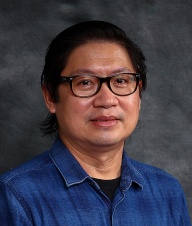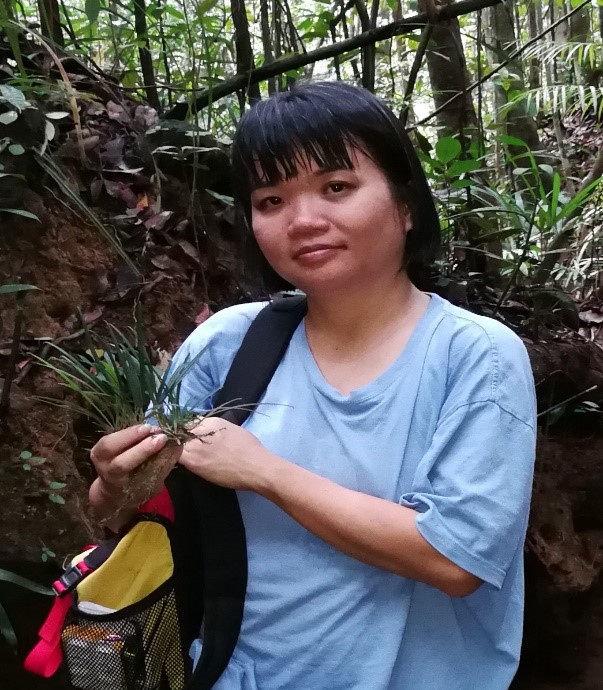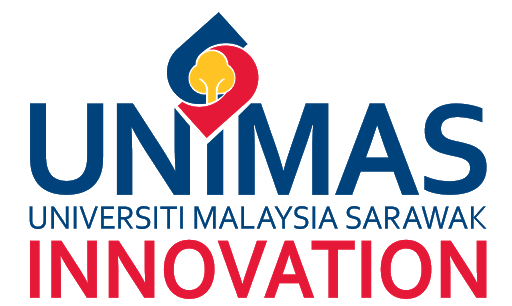Natural Sciences

HEAD OF RESEARCH CLUSTER
Professor Dr Edmund Sim Ui Hang
Faculty of Resource Science and Technology
Doctor of Philosophy in Biochemistry, University of Queensland (2000)
Phone : +6082 583041 Fax : +6082 583160
Email: uhsim@unimas.my
Professor Dr Edmund Sim Ui Hang
Faculty of Resource Science and Technology
Doctor of Philosophy in Biochemistry, University of Queensland (2000)
Phone : +6082 583041 Fax : +6082 583160
Email: uhsim@unimas.my
INTRODUCTION
The field of natural science has been a key research domain since the inception of UNIMAS. The research in natural science emphasizes the scientific process and enquiry, and has centered around the wealth of natural resources in Sarawak. Research was undertaken in both basic and applied science using innovative and multidisciplinary approaches to understand the ecosystem, and the potentials from biodiversity.
The field of natural science has been a key research domain since the inception of UNIMAS. The research in natural science emphasizes the scientific process and enquiry, and has centered around the wealth of natural resources in Sarawak. Research was undertaken in both basic and applied science using innovative and multidisciplinary approaches to understand the ecosystem, and the potentials from biodiversity.
The University offers research opportunities in the main disciplines of natural sciences namely: analytical chemistry, aquaculture, aquatic science, biochemistry, biodiversity, biopolymer, biotechnology, botany, ecology, entomology, environmental microbiology, environmental chemistry, environmental science, evolution, forest science, forensic chemistry, genetic, inorganic chemistry, marine science, microbiology, molecular biology, molecular ecology, mycology, natural product chemistry, natural resource management, organic chemistry, physical chemistry, plant pathology, plant propagation, plant science, plant systematics, soil science, water resource management, wood science, wood protection and zoology.
The Natural Science Cluster has spearhead research in biodiversity and environmental conservation, and sustainable development in Sarawak through a number of national and local grant funding which emphasizes on the knowledge of flora and fauna, habitat destruction and community interactions. The shift from basic to multi-disciplinary approaches utilising innovative technologies in key areas such as biotechnology and chemical technology has seen increased research and development in commercial crops such as the sago palm.
In recent years, research on sago palm focusing on fermentation, biodegradable materials, sago fly ash and other fundamental aspects has attracted international partnership, leading to increasing strategic international partnership, especially with Japanese institutions. Cross disciplinary research and intersecting technologies in priority area of natural science and other disciplines such as IT is now highly encouraged to promote synergy in research and development, and strengthening the overall research outputs of UNIMAS.
AIMS AND OBJECTIVES
- To enculturate interdisciplinary research in natural science through the increase participation of researchers who may not previously have considered the applicability of their work in other disciplines.
- To disseminate knowledge strategically through quality publication that are also impactful to the community.
- To strengthen capacity for research, innovation and knowledge exchange through partnership with excellent research and researchers nationally and internationally.
-
To strategize and secure funding from international grants in addition to national and local grants.
MISSION
To bring natural sciences cluster to be internationally recognized through excellence in research and publication so as to enable the university to advance its educational program.
PLAN FOR 2019
The Research Cluster on Natural Science, UNIMAS plans to achieve the following during the year 2019:
- A one-fold increase in number of national grants secured compared to previous year. National agencies such as FRGS, TRGS, PRGS, as well as state research grants such as from SRDC.
- One international research grant. Workshop on proposal development and grants application targeted for international grants application such as Newton-Ungku Omar Fund and European Union-Erasmus+ will be conducted.
- One MoU/MoA with industrial partners especially for innovation.
- Increase in high impact publications. To meet this criteria, researchers are encouraged to attend workshops or courses conducted by RIEC which focus on aspects of publishing in Q1 Journal
RESEARCH GROUPS
The research cluster on Natural Science will be strengthened by setting up four (4) research groups associated to the Science Faculties as follows:
-
Biodiversity and Conservation
-
Environment and Resource Management
-
Applied Sciences and Innovation
-
Molecular Biology and Biotechnology
The research group focuses on aspects of zoological, botanical and aquatic studies that are fundamental in nature with implications in applied biology that includes conservation studies. The team broadly include areas of animal systematics and conservation, wildlife conservation, aquatic biology and oceanography, plant taxonomy and systematics, evolution, biostatistics and phylogeny. The research team within this group has successfully undertaken the following projects:
- Taxonomy and systematics of Araceae and Zingiberaceae species in Sarawak
- Baseline Study of Flora and Fauna and Fauna of Niah National Park
- A Study of Swiflet and Bats Species of Niah National Park
- Population dynamics and genetic structure of green sea turtle (Chelonia mydas) in Sarawak
- Effects of Landscape Fragmentation on the Biology of Bornean Horned Frog (Megoprhys nasuta) at Sarawak
This group is currently active in the following projects:
-
Molecular, taxonomic, and chemical analyses of Schismatoglottis nervosa grade (Schismatoglottideae).
-
Genetic diversity of Malaysian Mahseers (Tor spp.) with special focus on Sarawak semah, Tor duotrensis
-
Diversification of frogs (Amphiobia: Anura} Lineages as Indicators for ecosystem health
-
Ecology and genetic analysis of saltwater crocodile population in Samarahan River Basin
-
Sadong Jaya Mangrove Nature Reserve Biodiversity Expedition
-
Investigating the population trend, foraging ecology and inter-tidal habitat use of shorebirds using unmanned aerial vehicle (uav) at greater Bako-Buntal Bay, Sarawak.
-
Distribution of rodents and dynamics of parasites at different forest types and urban areas in Sarawak




